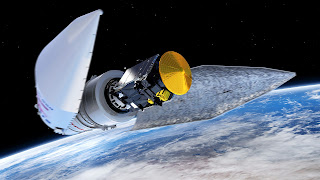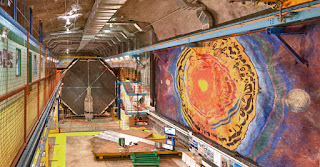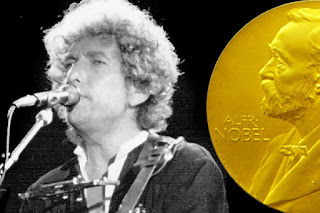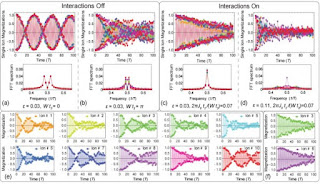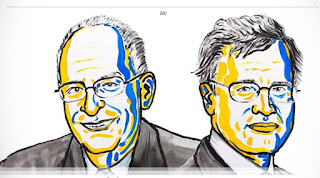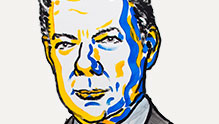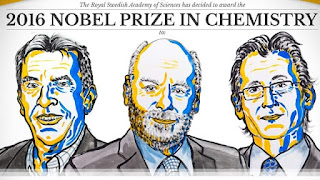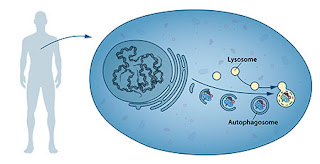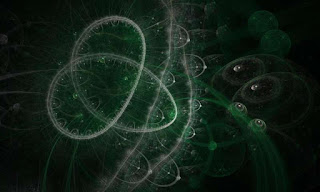Ok this is a short story i started a minute ago. Real gun shy about putting my written work out, but we're all friends here...lol
I am debating if i want to continue this and make it into a story then comic series.
comments are welcomed!
I followed behind my mentor closely as they made our way through the dark empty room. Boxes stacked up in no particular order littered the large warehouse. From what I could gather nothing else was housed here. If it were not for the few broken windows letting in the moonlight into the warehouse, they we were running into danger totally blind. And that could be dangerous.
It wasn't a particularly cold evening but as usual , the closer we got to our target the cooler the air seemed to get.
“Ok you can tell were are close now” My leader began to see the cold smoke come from his mouth as he spoke.
A shiver ran through my body when I noticed the symbol on the back of his neck suddenly began to glow.
“Heads up rookie” he looked back “You are about to get your first taste of a “Catcher”
I swallowed hard and wasn't sure if i was ready for this. But at this point it was not a choice.
“You feel it yet girl?” He asked.
“No” I said in a soft voice as my eyes strained through the low light. Then suddenly, a flash of green caught my eye and I could feel the sudden cold . My partner “Vet” says I was should be able to feel the nightmares essence as it struggled to break free. It knew why were here. It knew what we were all about.
But I was green, a rookie. I hadn't had the experience my mentor or the others had.
Walking slowly further in,a flash of green caught my eyes. I paused before calling out to Vet, as the creature glared at me with a bit of curiosity in it’s eyes. And there it was. It was bigger than I anticipated and that made me even more nervous. It was black….no, dark gray body it’s head misty in color with multiple eyes of deep green that illuminated in the darkness.
“Nice job rookie. Those fresh eyes are helpful”
They called him “Vet” because of his experience as a Catcher.
I have have heard that when a Nightmares gets caught it must be destroyed because of their volatile essence. They say it’s never pretty seeing a nightmare caught in a trap. It' snarls, snaps and spits, thrashes around and if you get too close it can that essence has been known to posses...or so I heard.
A few steps behind “Vet” I noticed his embedded artifact began to glow even brighter. “Vet” was ready to “catch” and “dispose”
Catcher's Artifacts can't be used by just anyone. You have to be attuned with it. It has to accept you as a user. Or be born with the ability.
Once it does they say, the ease at which you can sense and find Nightmares is a little unnerving
As the newbie I stared at it hopelessly and intrigued as the liquid like green lava spewed from it mouth while it snarled and snapped the closer “Vet” got to it.
It could have snatched Vet as close as he was to it. The Nightmare only reared it’s head up at him and growled.
It was fighting to untangle itself from the “trap” a triangle symbol that looked like it had webs crossing it in every direction. The trap was a symbol of a people lost long ago from what I understand. A symbol of what some believed was just a old tale to get kids to go to bed with happy thoughts. Whatever the reason, the symbol worked in catching these nightmares. Once the Nightmare has been dreamed it looks for an escape.
“Ok” Vet yelled unlocking and loading his gun without even missing a step, then quickly unloaded his clip on the “Nightmare”
The nightmare fought it's impending death, it's body starting slowly solidifying as it was caught in the trap. Heat from the enhanced weapon put him out of his suffering quickly. For a second you can see the nightmare in a solid form before it explodes into “dust” that settle onto the floor in a pile of shimmering green. Funny how beautiful the green “dust” that it leaves behind is. It shimmers without any light hitting it, it's actually a little sad.
“Vet” Stood still for a moment then took out a cigar and lit it taking along drag. Couldn't tell if he gave me a smile or a frown.
“Collect and let's get back to base Rookie” he exhaled a bloom of smoke.
Clean up isn't very hard. If you miss some it's not an issue. The dust just evaporates into the morning light. That's how they used to do it. Just catch and destroy and let the new day take care of the remains. But now retrieval is important.
You just scoop it all up with the special gloves and funnel that can withstand the extreme cold the dust gives off. I bottle it and bag it. Done!
Catchers don't know what exactly they do with the remains and it's not really none of their business.
“Good job! You hit on all sixes!” (slang for you nailed it) Vet stood over me as i unloaded my equipment
“So Rookie what ya think?”
“Not too bad it happens much quicker than I thought”
It's a job you try not to think too hard about other than doing your job and not getting hurt. I took the position because the pay was decent and it came with perks.
Living day to day trying to get by was become a chore. Most people tried to provide as best they could. Sometimes you closed your eyes to what was going on around you. either work one of the menial government provided job, found employment as best you could or scavenge in the streets .
Our elders were very few. Those who remember how this world fell apart or could remember the stories on how it happened were fading fast.
The rest of us were in the middle to try and reconstruct what once was.
I was a new Catcher was in my late twenties, single and if was lucky, be able to marry and reproduce. It seemed that I was person with qualifications suited for a “Catcher” profile perfectly. Healthy, well more healthy than most, had my wits about me and best of all didn't suffer from the sleep deprivation. I’m considered a lucky one...or bless if you wanted to look at it that way.
Like my new comrades, i didn't use the sleep medication that most everyone was dependent on now.
After re-adjust the strap on my bag the cold air left the room and was replaced the warm night air. It felt much better. My body didn’t particularly like the cold.
Exiting the warehouse to the vehicle the radio was flipped back on. Catchers run silent.communication cut off until you finish or need help. The radio seems to make your senses a little dull. You senses need to be on at all time.
The sudden shouting in their ears startled them both.
“Team 3 to base we need a back up”
Vet looked concerned with his cigar burning bright.
“Multiple Nightmare at our location, we need backup …..Old building on 6th”
Tossing his cigar out the door they rode off to Team 3's location.
“Guess your shift isn't over yet Rookie. You may get more that just “dust' on them virgin hands tonight”
This time of night the streets are empty. Not much to do in town well at least out in the open. Shops and markets are bolted shut. The makeshift street lights flicker on and off trying their hardest to light the way with limited power. People tend to stay inside and try to get as much sleep as possible.
Sleep.
A thing of value now.
Nights pass quickly and days are often too long, but what can you do. The earth has it way of doing things. And like a woman, after you treat her badly she's never the same.
Speeding through blocks, Vet opened his weapon bag.
“You got a weapon Rookie? Don't want you in a gunfight with bare knuckles”
“No one fights Nightmares with their bare hands Vet, but I'm strapped” I replied holding on tight through a hard right turn then coming to a stop
.
It was old building once stunning by the look at the outside decoration. The windows covered in with fine metal lines in straight lines that looked like a sunburst. Over the doorway were straight and symmetrical metal that met at the center top that formed a diamond shape with the most colorful glass inlay i’d ever seen.
Structurally it looked sound but it was old and decaying.
Even before they could get inside Team 3 was struggling over the radio. Whatever was going on inside they couldn't handle it.
“Team 1 to Team 3, what's your 20?
There was static at first, then yelling.
“Second floor …... you can't miss us!”
The static returned as both of them rushed inside and then up the stairs. There was swearing and gunfire. Vet's symbol was burning red and bright. Perhaps it was the adrenaline that got them us to the top of the stairs the so fast and into the fight. Vet unloading rounds before the I could even get from behind him.
5, no... 6...no 8 Nightmares snarling and snapping at us. Fangs bared and ready to strike. The Symbol failed unable to hold so many at once. The webbing that made it work , torn and dangling. There were piles of dust shimmering on the floor around it already destroyed by Team 3. How many had they destroyed? How many had come here?
I nervously yelled out “Is this supposed to happen?” retrieving holstered pistols. The Nightmares were acting like animals. Caged animals who were trying to get out. You could hear their hoarse voices,like a cat crying in the distance. It was eerie.
The room was freezing, between the loss of liquid nitrogen and one too many “Nightmares” ice crystals began to form on the walls. The temperature dropped as they kept firing.
“Why is it taking so long for these to go down?” A Team 3 member yelled out out while reloading.
“I got 3, but damn if they didn't use up most of my ammo”
It seemed like the harder they fought the harder they did, exhausting out ammo and running out of steam.
Vet looked over at me, his brow bunched up with concern. I could tell he was thinking of a way to end this quickly and get us out of here unharmed.
“Everyone down the stairs” we all quickly followed his lead and backed out slowly still engaging in gunfire.
“Rookie” he yelled out “How good a shot are you? Back me up!”
There was no time to answer. I quickly started to unload my clip while Team 3 made it quickly out of sight.
Then Vet reached into his pocket and brought out a silver orb. It beeped then suddenly was covered ice and smoke.
“Trust me Rookie?”
Yes, i trusted him. Did i really have a choice?
With a flick of his wrist he sent the orb flying towards the Nightmares that had grouped in the center of the room.
I saw the flash from the discharge, then the next second Vet's Face as he tackled me and we went tumbling down the stairs. The fall was slow..like time was holding us for a second. There was a loud boom then a swooshing sound, but it was overshadowed by the sound of us falling and me screaming as we hit the bottom floor and the room above us lit up in a bright flash.
Then the sudden fade to soft green, the luminous green of a defeated Nightmare.
Slightly stunned Vet rolled off m laid there beside my side for a second. Team 3, also exhausted sat quietly assessing the situation.
“You alive Rookie?”
“Yeah..I'll be fine” i finally got to my feet stretching out tight limbs. Vet re-lit another cigar and took a deep drag “ What the hell was that?”
None of us could answer. We were just as surprised as Vet. Two Nightmares in a trap, sure, three..ok it's been reported. But this many and this volatile, it left us all shaking our heads in wonder.
“This report is going to be a cluster fuck” Vet added finally on his feet and gathering his dispensed weapons. Base was going to want to know every detail and they were going to want every ounce of “dust” from this assignment.
Back at base, my night as a rookie Catcher was all anyone could talk about. All involved were given the day off to recover and be checked over by the doctors. Other Catchers began whispering about what happened. As i readied to leave i could feel all eyes on me and it made me uncomfortable.
Vet was already outside the gate to the base with a few other teammates, surrounded by females pawing all over him. His glowing cigar high in the air as he seemed revel in them fighting over his attentions.
Out of uniform I hadn’t noticed how big he was. The gear alone adds pounds to you and carrying it is like running a marathon.
For some reason I found myself staring a bit too long his way.
He caught my glance and smirked at me.
“Don’t get caught up in that hot mess Rookie” A female Catcher nudged me as we headed out together. “He’s got thirst that can’t be quenched” she chuckled “So sad!”
“Yeah” another Catcher responded “ That man’s got issues”
Passing Vet and his little group, I gave him a nod which he returned. I was glad this night was over. All i wanted was a good cup of tea and my bed.
Soon i was past the guard check mark and heading home. It was still dark out and the town was still sleeping.
The thud thud thud of my tires over the stone road that had be dug up to make way for a better one kept me alert. They were trying to get everything back together. Or at least as together as we could.
Home..finally.
Inside my tiny flat, I tired I not to think too much about tonight's events while making a cup of tea and settled into bed trying to shake off the pain of her fall.
At first, i thought I wouldn’t be able to sleep once home, but my body was telling me otherwise. Admittedly the sight of the Nightmare was still spinning in my head but sleep had more control this night.
Hearing about them and seeing them up close are two different things. They were fierce creatures no doubt but what had they really done to us?
I didn’t question if i could do this, because clearly i could. My feelings towards the nightmares, however, were neutral. But can i be neutral about something i’m supposed to destroy?
Chapter 1 end

